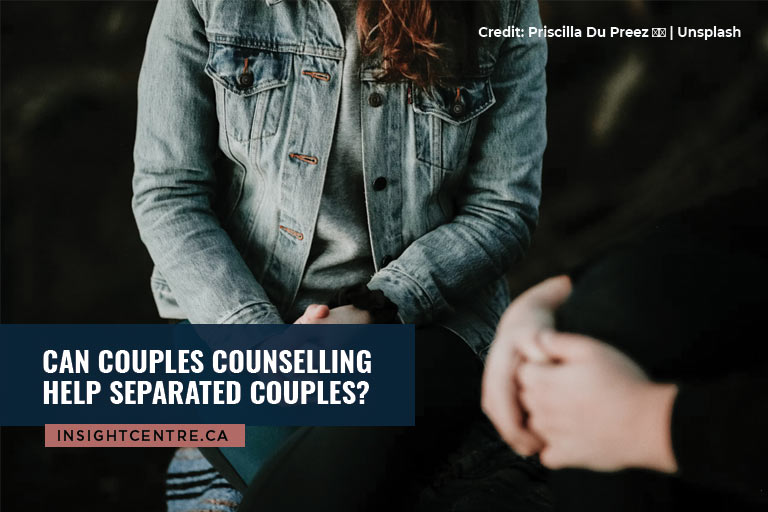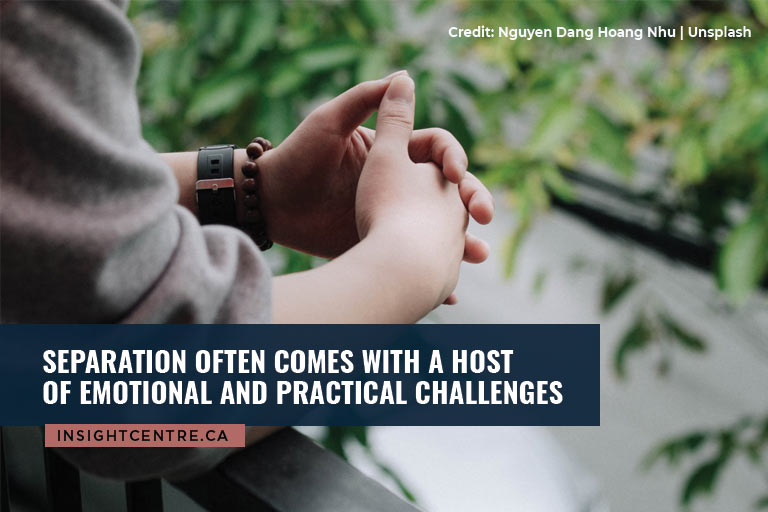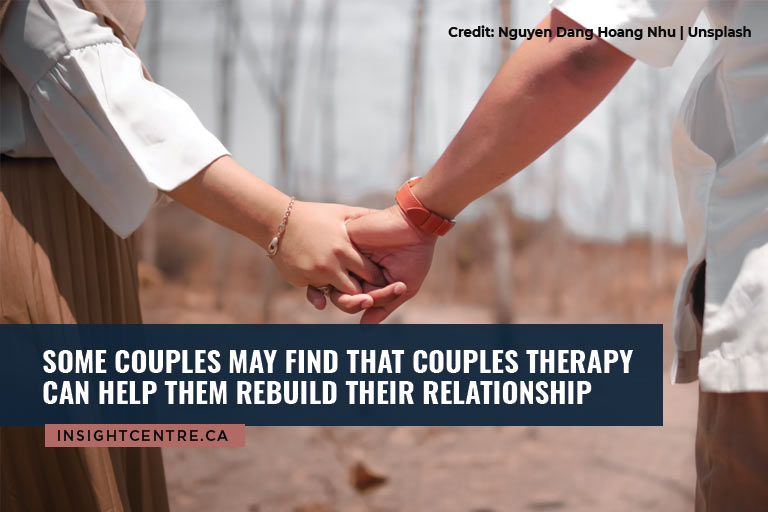
Couples counselling is often associated with strengthening relationships, but can it also help couples who have already separated? While it might seem counterintuitive, couples therapy can be a valuable tool for separated couples, especially when dealing with difficult emotions, unresolved issues, and the complex process of separation or divorce.

Separation, a significant life transition, often comes with a host of emotional and practical challenges. As couples go through this difficult period, they may encounter various obstacles that can impact their well-being and future.
While the challenges of separation can be overwhelming, there are strategies to cope and move forward:
Even though a couple may have decided to separate, there are still significant benefits to seeking couples therapy. Here are some key reasons why:
One of the primary reasons relationships break down is poor communication. Couples therapy provides a safe and neutral space for both partners to express their feelings honestly and openly, without fear of judgment or retaliation. A skilled therapist can help identify communication patterns that may be contributing to the problems and teach healthier ways of communicating.
Separation can evoke a range of intense emotions, including anger, sadness, guilt, and fear. Couples therapy can help both partners process these emotions in a healthy way, reducing the likelihood of emotional outbursts and destructive behaviour.
The separation process can be emotionally draining for both partners. A therapist can offer emotional support and help them cope with feelings of sadness, anger, guilt, or loss.
When a couple separates, it’s essential to clarify expectations for the future, such as child custody, property division, and co-parenting arrangements. A therapist can help facilitate these conversations, ensuring that both parties feel heard and understood.
If children are involved, couples therapy can help parents develop effective co-parenting strategies. This includes discussing child custody, visitation schedules, and how to communicate about their children’s needs.
Whether the goal is reconciliation or a more amicable separation, couples therapy can help build a bridge to the future. By addressing past issues and developing new communication skills, couples can move forward with greater peace and understanding.
In some cases, couples therapy can provide a space for closure and healing. This can help both partners move on from the relationship and start new chapters in their lives.

While not all separated couples choose to reconcile, some may find that couples therapy can help them rebuild their relationship. Here’s how:
A skilled therapist can help identify the underlying issues that led to the separation, such as unresolved conflict, infidelity, or lack of intimacy.
Trust is the foundation of any healthy relationship. Couples therapy can help rebuild trust by encouraging honesty, transparency, and accountability.
Physical and emotional intimacy are crucial components of a fulfilling relationship. Couples therapy can help couples reconnect on an intimate level by addressing any underlying issues that may be hindering intimacy.
Reconciliation requires a commitment to change from both partners. Couples therapy can help couples develop a shared vision for the future and create a plan for making positive changes.
While separation may seem inevitable, it’s worth considering couples therapy as a last resort. Here are some warning signs that indicate your relationship may be deteriorating and could benefit from professional intervention:
Constant disagreements and heated arguments can erode the foundation of a relationship.
A decline in meaningful conversations and emotional connection can lead to growing distance and resentment.
Feeling emotionally detached or disconnected from your partner can signal underlying issues that need to be addressed.
Betrayal of trust can severely damage a relationship and require significant effort to rebuild.
Any form of physical, emotional, or psychological abuse is a serious red flag and requires immediate intervention.
Addiction can negatively impact relationships, leading to conflict, neglect, and emotional turmoil.
If you recognize these signs in your relationship, seeking the guidance of a qualified couples therapist can help you and your partner assess the situation, improve communication, and look into potential solutions. Remember, seeking help is a sign of strength, not weakness.
If you’re in Barrie or Toronto considering couples therapy, don’t hesitate to reach out to a qualified therapist. The sooner you seek help, the better your chances of resolving your relationship issues.
Call Insight Centre Counselling & Psychotherapy today at +1 647-633-1928 to schedule a consultation and take the first step towards healing and growth.
Copyright 2025 Insight Centre | All Rights Reserved | Sitemap | Powered by: Local SEO Search Inc.